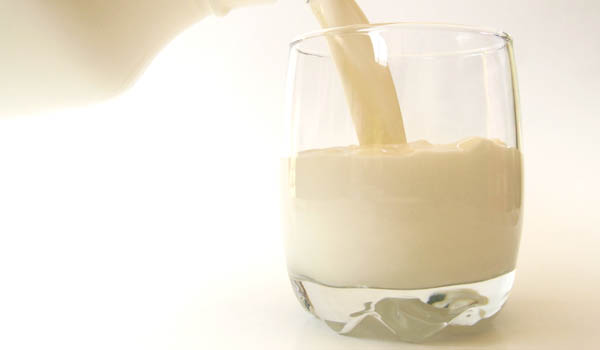Milk and Yogurt May Boost Hipbone Strength

Get the world’s most fascinating discoveries delivered straight to your inbox.
You are now subscribed
Your newsletter sign-up was successful
Want to add more newsletters?

Delivered Daily
Daily Newsletter
Sign up for the latest discoveries, groundbreaking research and fascinating breakthroughs that impact you and the wider world direct to your inbox.

Once a week
Life's Little Mysteries
Feed your curiosity with an exclusive mystery every week, solved with science and delivered direct to your inbox before it's seen anywhere else.

Once a week
How It Works
Sign up to our free science & technology newsletter for your weekly fix of fascinating articles, quick quizzes, amazing images, and more

Delivered daily
Space.com Newsletter
Breaking space news, the latest updates on rocket launches, skywatching events and more!

Once a month
Watch This Space
Sign up to our monthly entertainment newsletter to keep up with all our coverage of the latest sci-fi and space movies, tv shows, games and books.

Once a week
Night Sky This Week
Discover this week's must-see night sky events, moon phases, and stunning astrophotos. Sign up for our skywatching newsletter and explore the universe with us!
Join the club
Get full access to premium articles, exclusive features and a growing list of member rewards.
When it comes to improving bone health, not all dairy products are equally beneficial. In fact, some foods in the dairy case do a better job than others at strengthening bones, a new study suggests.
Researchers at the Institute for Aging Research at Hebrew SeniorLife in Boston found that milk and yogurt are the best dairy choices for increasing bone mineral density in the hip. But they found no evidence that these two foods were linked to better bone density in the spine.
As estimated 44 million Americans, have osteoporosis, a bone-thinning disease that is caused by low bone density and raises the risk of fractures, especially of the hip, spine and wrist.
During the study, researchers analyzed data gathered from just over 3,200 men and women, ages 26 to 85, who were participating in the Framingham Offspring Study. These individuals are the adult children of the original participants in the Framingham Heart Study, a long-running, Massachusetts-based study designed to pinpoint the factors linked to the development of heart attack and stroke.
All the people in the dairy study completed a 126-item food frequency questionnaire, which indicated how often they ate certain foods each week. Scientists also considered whether people smoked, took calcium or vitamin D supplements and got regular exercise, and whether or not women had entered menopause — all factors that can influence bone health.
After following these mostly middle-age men and women for 12 years, the researchers found that 43 hip fractures had occurred. Because the number of hip fractures in the group was so small, the researchers were unable to draw firm conclusions about dairy consumption and hip fracture risk from their data, and they suggest more research is needed.
However, the findings did show that a higher intake of cream was associated with lower bone mineral density in the hip, but not in the spine. Foods in this group included ice cream, sour cream, cream cheese and cream.
Get the world’s most fascinating discoveries delivered straight to your inbox.
"Cream is definitely different from the rest of the dairy products," said lead author Shivani Sahni, an assistant scientist at the institute. "It's higher in saturated fat and has lesser amounts of bone-beneficial nutrients, such as calcium, protein and vitamin D."
In addition, the study found that eating cheese — both hard cheeses, like cheddar and Swiss, and soft cheeses, such as cottage and ricotta – was not linked with higher bone mineral density of the hip or spine. Sahni suspects cheese may have beneficial effects on bone health that were not shown in the research, possibly because the researchers lumped all kinds of cheese into one big category, including processed varieties high in fat and sodium, which may not be so good for bones.
Previous research has explored the link between people's milk-drinking habits during childhood or as adults and their bone mineral density as they grow older. However, fewer studies have honed in on various types of dairy products and compared their effects on bone health and hip fracture risk.
The findings appear in the February issue of the journal Archives of Osteoporosis. A food company that makes yogurt sponsored the research.
The researchers also tracked a smaller subset of slightly more than 2,700 adults, who had filled out the dietary surveys and received bone density tests of the hip and the spine.
Researchers found that people who downed 2.6 servings of milk, yogurt and cheese a day – which equals a little more than 2.5 cups of these foods — had better bone density scores of the hip and spine than people who consumed smaller amounts.
Sahni suspects the various nutrients in dairy foods – their protein, calcium and vitamin D content, for example – work in synergy, and together they have a better effect on bone health than any of these single nutrients acting alone.
Pass it on: Milk and yogurt may be the best dairy choices for building strong hipbones.
This story was provided by MyHealthNewsDaily, a sister site to LiveScience. Follow MyHealthNewsDaily on Twitter @MyHealth_MHND. Find us on Facebook.
Cari Nierenberg has been writing about health and wellness topics for online news outlets and print publications for more than two decades. Her work has been published by Live Science, The Washington Post, WebMD, Scientific American, among others. She has a Bachelor of Science degree in nutrition from Cornell University and a Master of Science degree in Nutrition and Communication from Boston University.
 Live Science Plus
Live Science Plus










